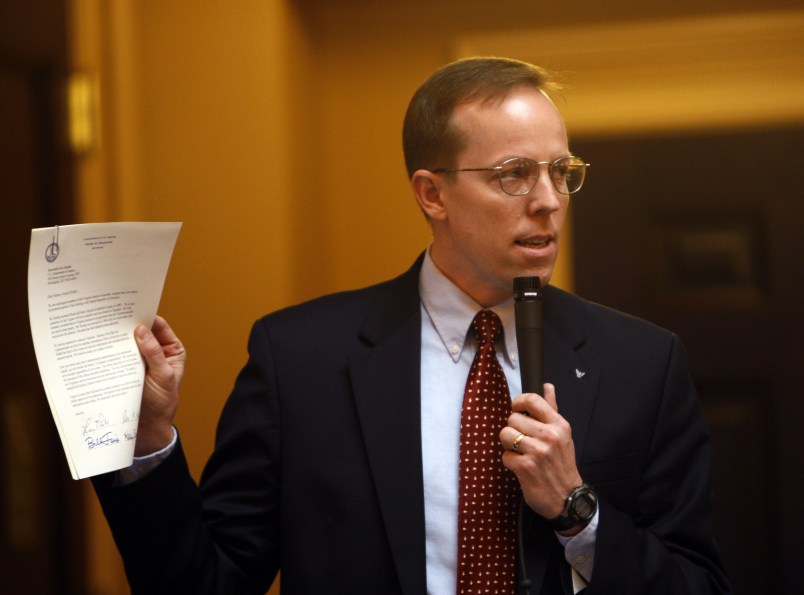Recently the Virginia House of Delegates passed two bills ostensibly aimed at stopping human trafficking in Virginia. HB 235 forces people convicted of soliciting an underage prostitute to register as sex offenders. HB 660 enables prosecutors to seize the earnings of sex workers.
The bills were submitted by Del. Rob Bell, (R-Albemarle, pictured) who in 2012 voted in favor of a bill requiring all women to undergo a transvaginal ultrasound prior to having an abortion. In the same session, he was the primary sponsor of a bill which was widely criticized by civil rights organizations and failed to pass, requiring police to inquire into the citizenship of anyone arrested, regardless of criminal charges.
“Human trafficking is a $9.8 billion industry in the United States,” Bell said. “Organized crime and others commit this crime for the money. By attacking the financial incentives, we can reduce the sex trade.”
Yet it’s difficult to see how arresting sex workers and then taking their earnings will impact human trafficking in Virginia. In all of 2013, Virginia law enforcement conducted just one sting involving human trafficking. Nationwide, the Department of Justice only convicted 138 human traffickers in 2012.
Virginia does, however, regularly arrest sex workers. Already this year, police in Newport News have arrested six women on prostitution charges. Hardly child victims, their ages ranged from 29 to 46.
So why is Virginia passing laws ostensibly aimed at punishing human traffickers, when they’re not even arresting them? For a clue as to the origin of laws such as HB 660, it’s helpful to look at the Richmond Justice Initiative, a supporter of the law. The website explains the theocratic mission:
My name is Sara Pomeroy and I am the founder of the Richmond Justice Initiative. A non-profit faith based organization that was founded from what started as a detour. That detour led to an encounter with God. That encounter with God gave rise to a calling.
Last month the organization sponsored an Abolition Conference at West End Assembly of God. Abolitionists want to eliminate sex work through more punitive legislation. Generally motivated by moral opposition to sex work, they have moved into using outrage and concern over human trafficking to push for harsher laws aimed at punishing sex workers.
HB 660 is exactly this sort of bill. It allows police to take possession of these women’s property, including cash and vehicles, upon their arrest. The women don’t even need to be convicted to be relieved of their property.
It’s unclear what part of the Bible Pomeroy found a commandment that thou shalt stop human trafficking by letting cops steal from sex workers. But there is zero evidence that Virginia is full of people making tons of money off human trafficking. There is excellent evidence that incentivizing cops to arrest more grown women by allowing them to seize their earnings will do nothing but line the pockets of police department at the expense of an already-vulnerable population.
Human trafficking is a real problem which deserves real solutions. Punishing sex workers is not an acceptable response.
Cathy Reisenwitz is an Editor at Young Voices and a D.C.-based writer and political commentator. She is Editor-in-Chief of Sex and the State, a regular contributor to Bitcoin Magazine, and her writing has appeared in Forbes, the Chicago Tribune, VICE Motherboard, Reason magazine, Talking Points Memo, the Washington Examiner and the Daily Caller.






